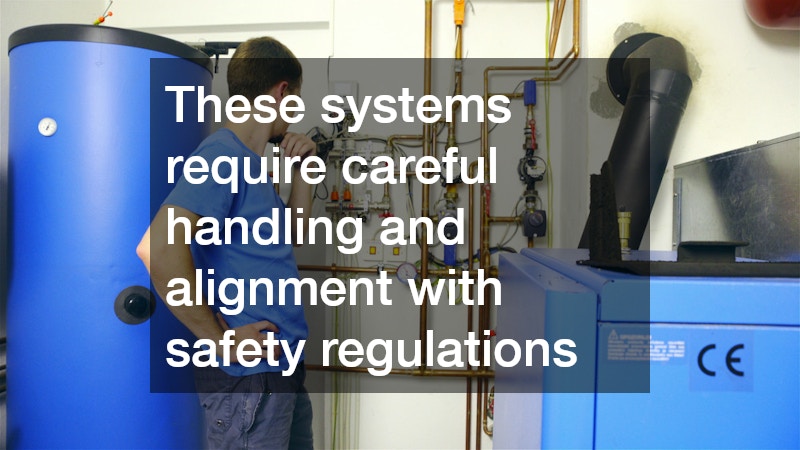Explore these common plumbing topics and questions that a local plumber frequently addresses. Understanding these issues can help homeowners maintain their plumbing systems efficiently and avoid common pitfalls.
Understanding Plumbing Basics
How does the plumbing system in my house work?
The plumbing system in your house is an intricate design of pipes and fixtures, strategically constructed to deliver clean water and remove wastewater. It operates through two main subsystems: one to bring freshwater in and another to take wastewater out.
This invisible but crucial system involves various elements such as pipes, joints, fixtures, and appliances, each playing a pivotal role. By grasping the fundamentals of your home’s plumbing, you can more effectively communicate with professionals when issues arise.
Central to the system are the water supply lines, which consist of pressurized pipes that deliver water to various faucets and fixtures. These lines integrate with heating appliances and filtration systems, ensuring that you have access to hot and cold water as needed. Water pressure is critical here; too much pressure can stress pipes and connections, whereas too little can lead to inefficient water delivery.
The drainage system is equally vital, responsible for expelling used water and waste. Sinks, toilets, and tubs connect to drain pipes that lead to a sewer or septic tank. This system relies on gravity and air movement, facilitated by vent pipes, to maintain flow and prevent blockages. Any malfunction can lead to clogs or overflows, underlining the importance of regular inspections and maintenance.
Preventing Common Plumbing Issues
What are the most common plumbing issues, and how can I prevent them?
Plumbing issues such as clogged drains, leaky faucets, and running toilets are among the most frequently encountered by homeowners. Clogged drains are often due to the buildup of debris and foreign objects in pipes. Preventative measures include using drain guards and avoiding disposing of hair, grease, and large food particles down drains. Regularly cleaning drain pipes with boiling water or safe cleaning agents can also help maintain flow.
Leaky faucets, a source of both annoyance and water wastage, often result from worn-out washers or seals inside the tap. Performing periodic checks and replacing these small components can prevent leaks from escalating into more significant issues. An average leaky faucet can waste gallons of water each day, which highlights the environmental and financial benefits of addressing this issue promptly.
Running toilets usually stem from flapper valve issues or problematic fill tanks. This constant flow of water not only hikes up water bills but can indicate a more significant underlying problem. Ensuring that toilet components are correctly aligned and in good condition can preempt the need for more extensive repairs. Addressing small problems as soon as they appear is crucial in preventing more significant damage.
Knowing When to Call a Professional
How do I know when it’s time to call a professional plumber?
While handling minor plumbing repairs yourself, such as unclogging a drain with a plunger, is feasible, recognizing the boundary between DIY and professional intervention is vital. Persistent issues that resist simple fixes often signal deeper, system-wide problems that require expert evaluation. Attempting complex repairs without proper knowledge can worsen the situation and increase repair costs.
Water takes unusual paths, and what appears to be a small leak may be symptomatic of a significant issue elsewhere. Professional plumbers have the required diagnostic tools and experience to pinpoint underlying causes accurately. For instance, persistent water pressure issues might hint at a hidden leak or faulty main valve, problems that require specialized skills to address without causing further damage.
Particularly with complex systems involving water heaters or sewage backups, professional assessment and repair are not just advisable—they are often necessary. These systems require careful handling and alignment with safety regulations, underscoring the importance of involving a skilled plumber. By investing in professional services promptly, you avert long-term damage and enhance the safety and efficiency of your home.
Understanding Plumbing Regulations and Codes
What plumbing regulations and codes should I be aware of?
Familiarity with plumbing regulations and codes is crucial for ensuring compliance and safety in any plumbing project. These codes, often established at local or regional levels, dictate standards for materials, design, and installation procedures. Ignorance of these regulations can lead to fines, unapproved work, and compromised safety.
Consulting with trusted plumbing professionals can provide clarity on relevant codes and how they apply to your project. Licensed plumbers are equipped to adhere to these standards, ensuring that all work performed meets the necessary criteria. This not only instills confidence in the quality and durability of the work but also prevents future legal issues related to non-compliance.
Renovations or new installations often require getting permits, which aim to ensure all plumbing work aligns with safety and efficiency requirements. Adhering to proper channels for approval not only keeps your project on the right track legally but also facilitates insurance claims for any potential future water damage or system failures resulting from unforeseen incidents.
By familiarizing yourself with these key plumbing topics, you can improve the longevity and efficiency of your home’s plumbing system. When in doubt, always consult with a professional plumber to ensure safety and compliance. Taking proactive steps to understand and maintain your plumbing can save significant costs and avoid inconvenience, creating a more stable and sustainable home environment.

